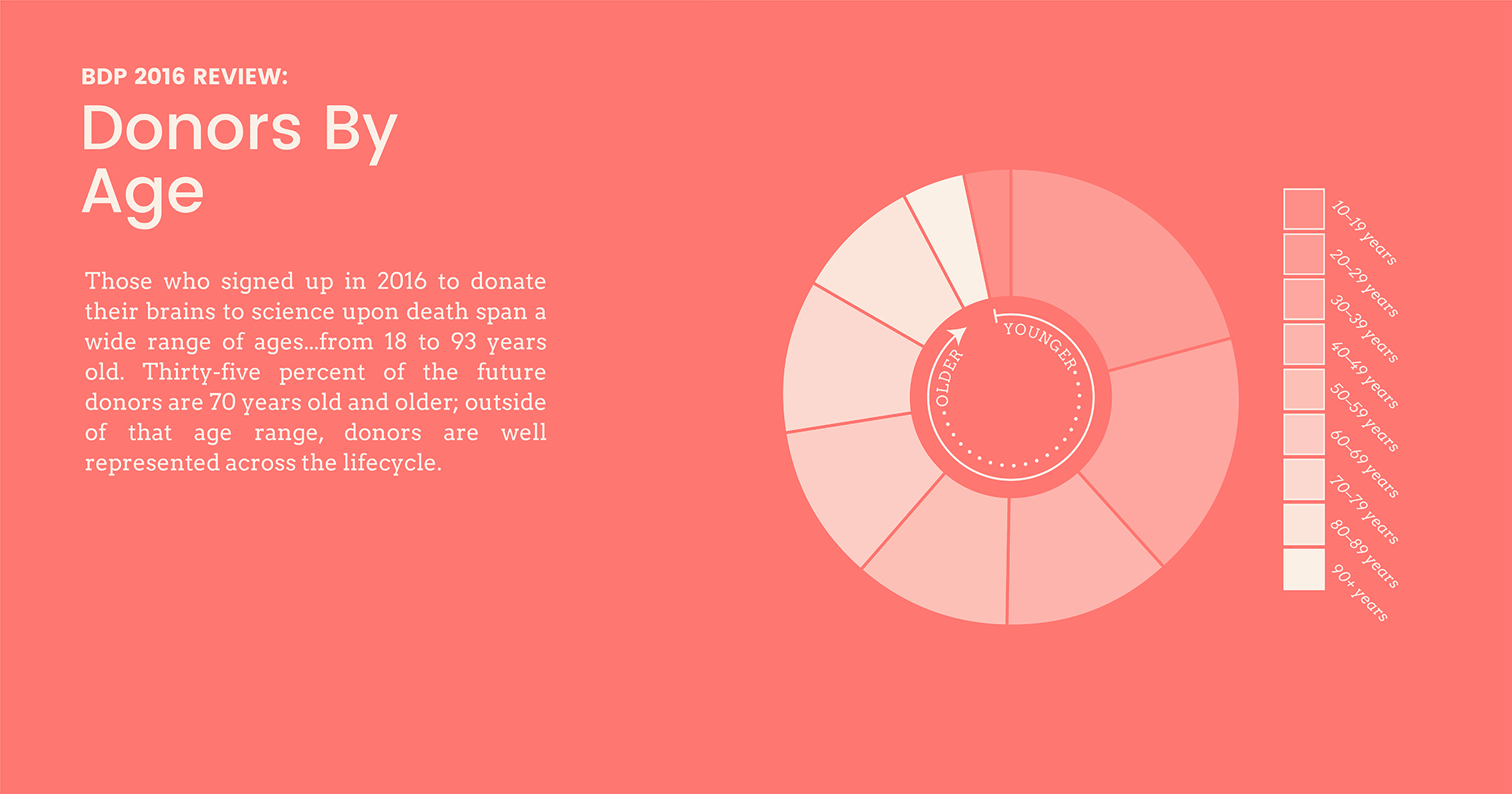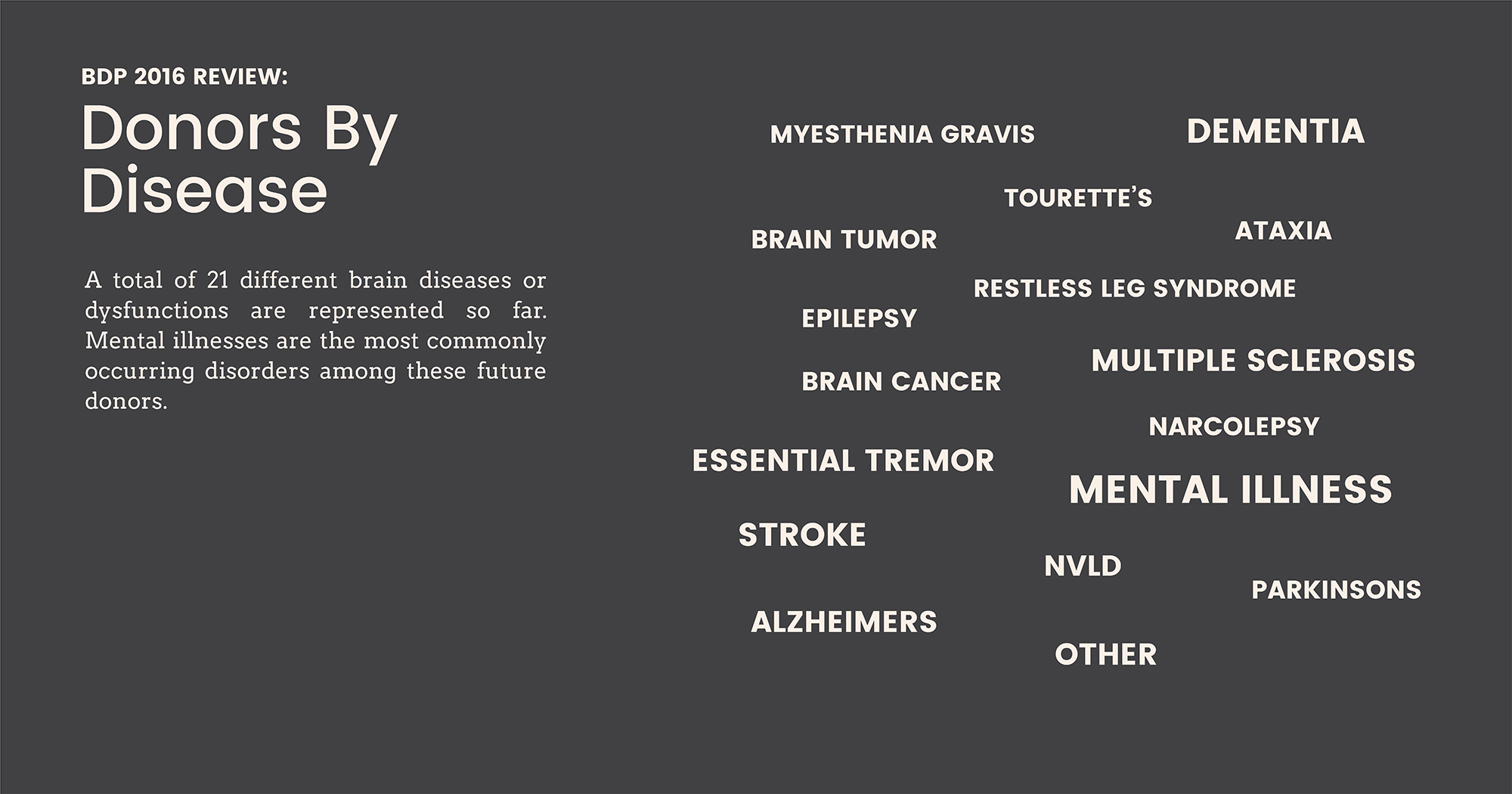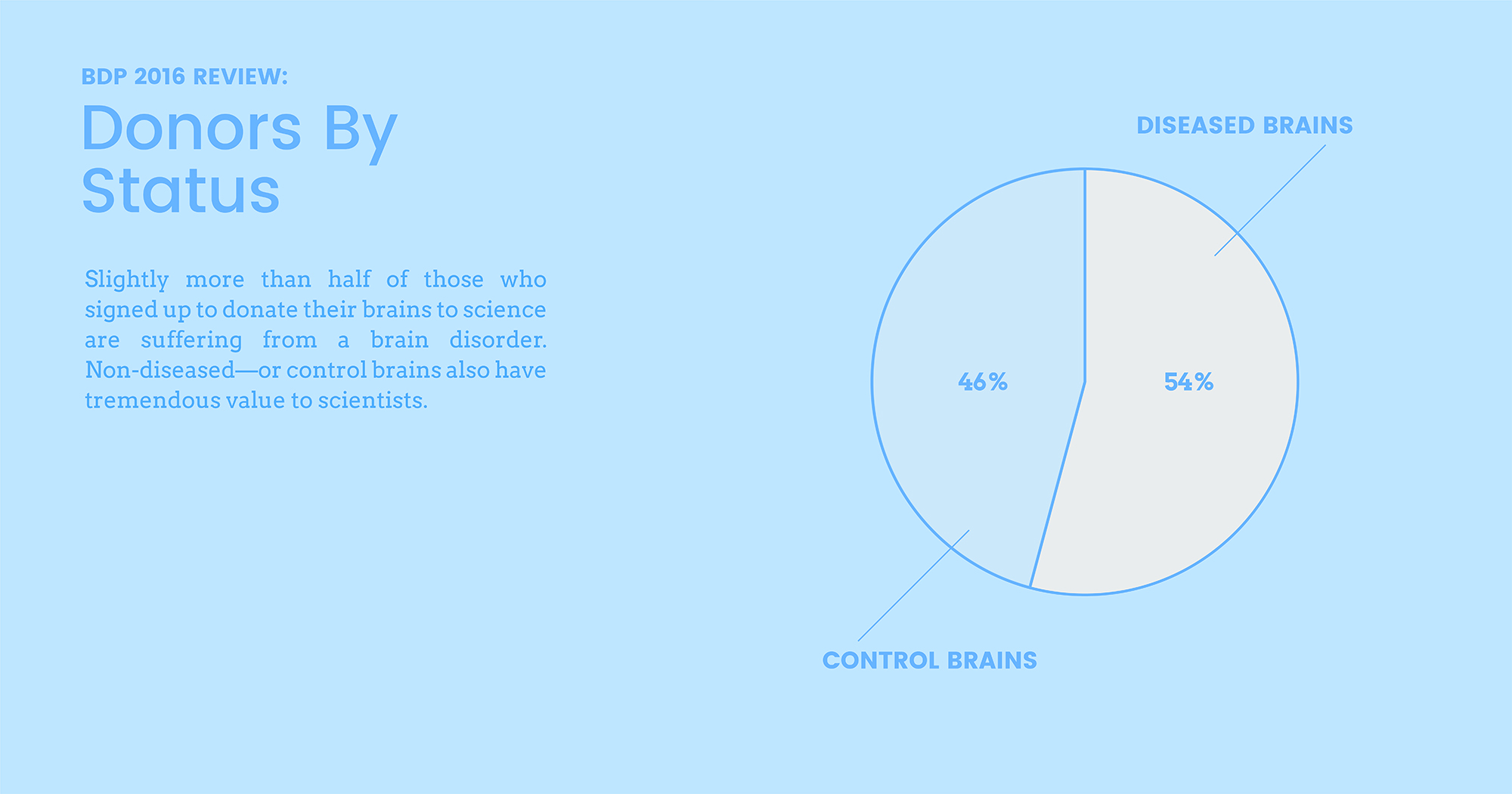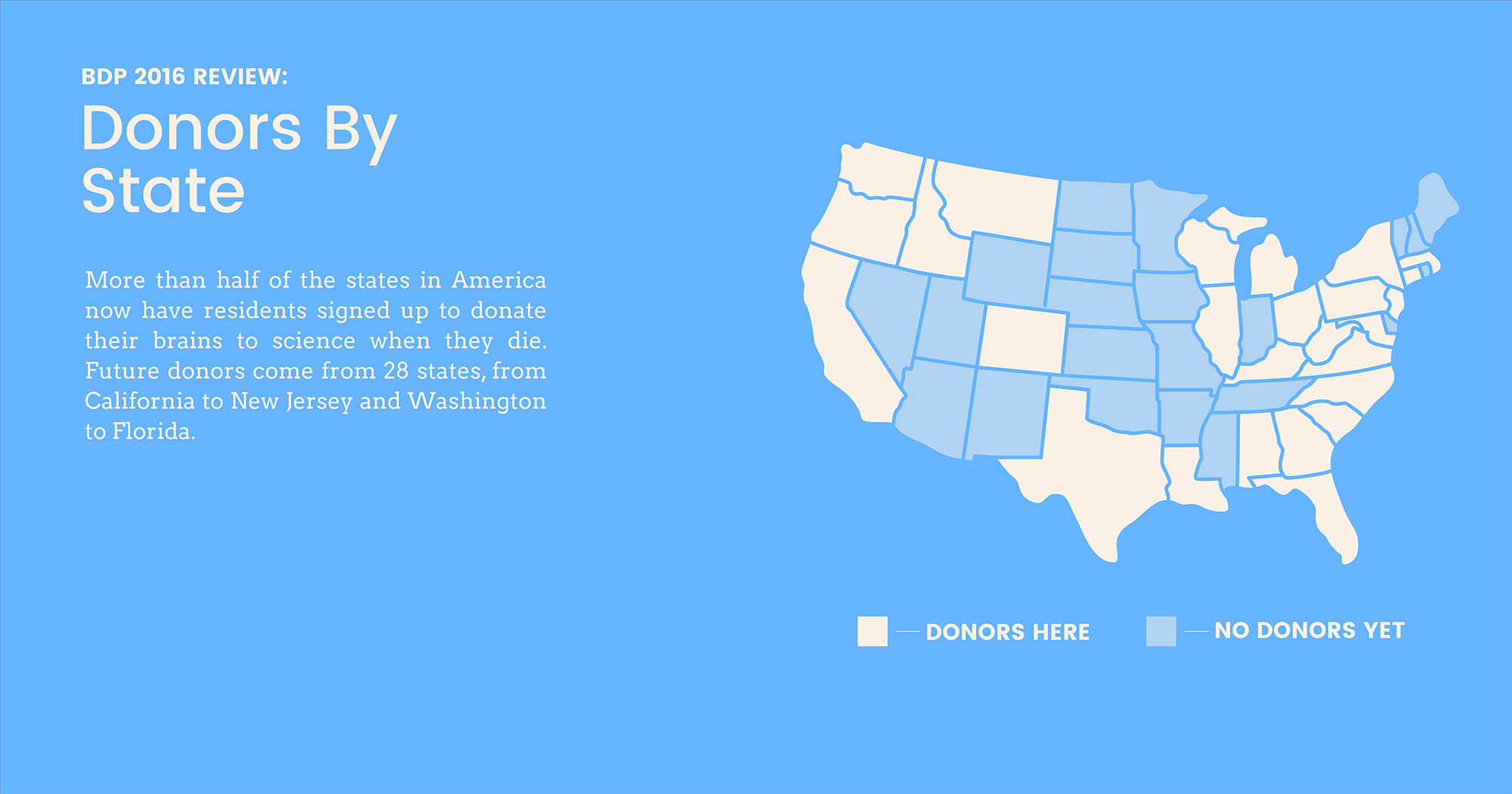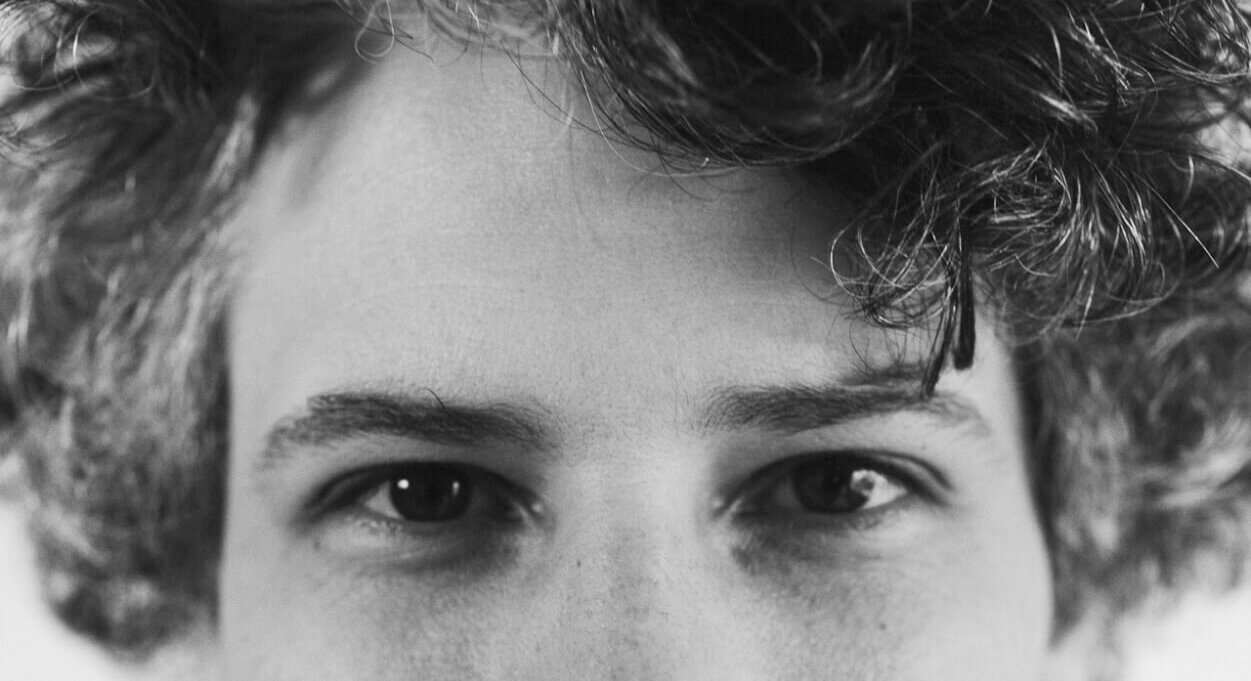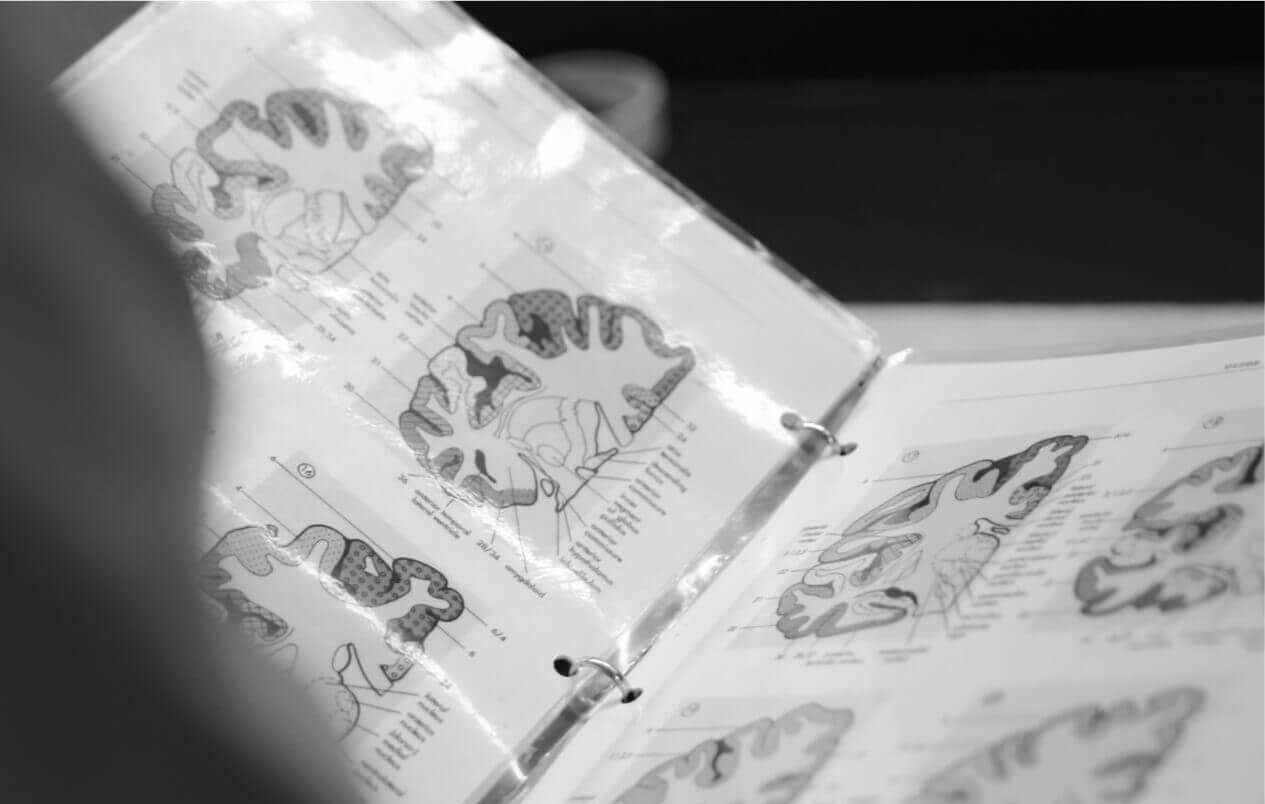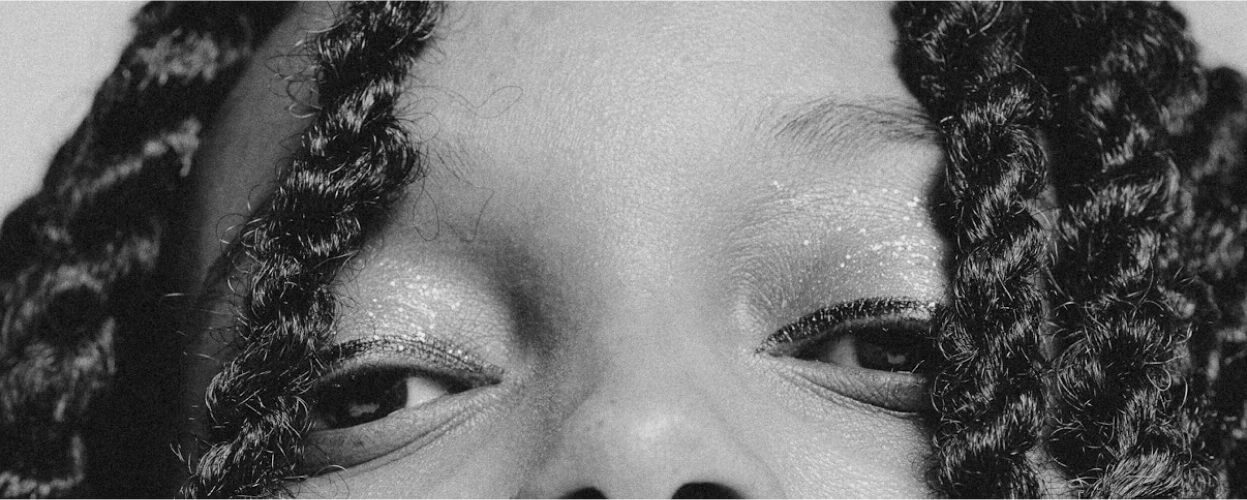They’re Just Like Us
So we’re off to a strong start at The Brain Donor Project – in 2016, brain donors across the age spectrum signed up in cities all across the country. They represent a number of the most pervasive brain diseases…and some that aren’t. This is great news. It’s critical for scientific investigations that the supply of brain tissue is highly diverse and representative of many different kinds of people who were powered by these brains when they were alive.
Moving forward, you need to think hard about brain donation in 2017 – no matter how old or sick or young or healthy you are. Science needs you. Here’s why:
If you’re young…
please don’t put this off. Sadly, young people die tragically all the time and chances are they have not determined or discussed their end of life wishes simply because it doesn’t seem urgent. It is. Difficult as it is to discuss, there is a severe shortage of young, healthy post-mortem brains for research simply because they don’t become available as frequently. Talk with your family about this now. In the event of a tragic accident, they won’t have to wonder what you may have wanted, and it may even help them with their sorrow. (See “If you’re old…” below.)
If you’re healthy…
even better. Researchers need control brains for every kind of study so they can compare their results from diseased brains. In fact, tissues from control brains could be used in dozens and dozens of investigations, which can impact treatments and cures for a wide variety of disorders. Whether you’ve been vigilant about taking care of your body and brain and/or lucky to have avoided neurological disorders, you can contribute plenty. And since someone in your circle (one in six of us) is suffering from brain disease, think about donating in their honor. Or memory.
If you’re old…
there’s an additional benefit to making arrangements to donate your brain now. Not only will scientists realize your gift sooner rather than later, but you and your family may be surprised at the sense of comfort it brings. Thoughts of legacy are front and center in older people and nothing you could leave behind is more valuable than taking action to ensure a healthier future for generations to come. When a family is suffering the loss of someone they loved deeply, there is a strong sense of solace and comfort from knowing something good is coming from their sorrow.
If you’re sick…
you can have a direct impact on potential treatments and cures for the neurological disease you’ve endured. Think about this: we’re using the same medications for Alzheimer’s disease that have been around for 20 years. We need to move forward faster with new discoveries – and that requires the resources to properly investigate. There is no substitute for high quality, well characterized human post-mortem brain tissue in the scientific realm. For many patients, it may not have been workable to participate in a long-term study of their disease; that doesn’t matter now. It’s more important to donate so that future patients may suffer less.
